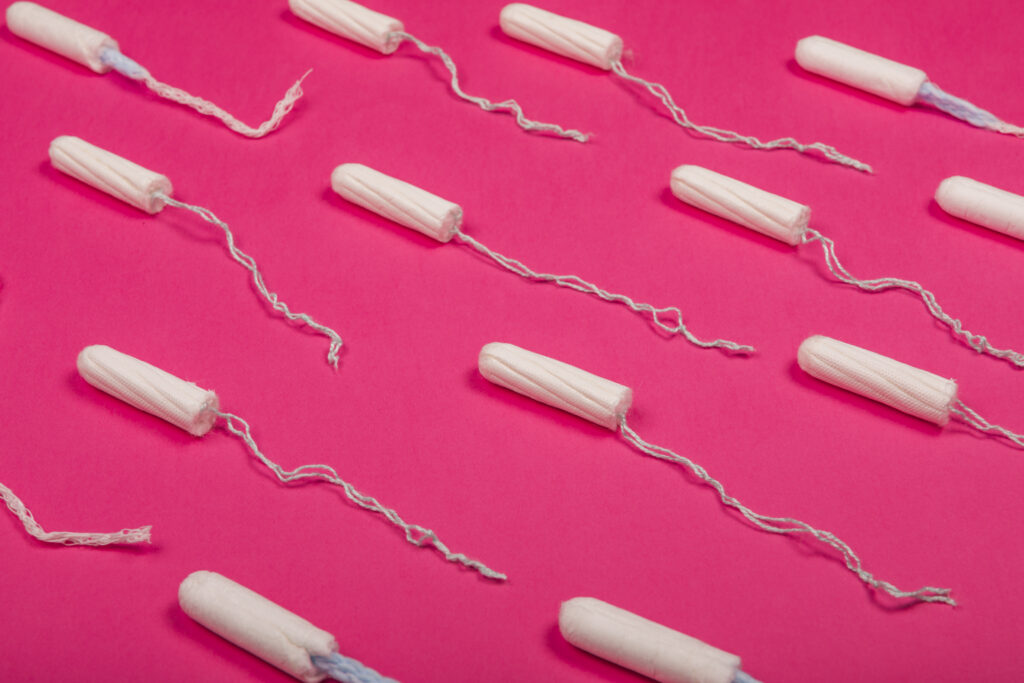Have you ever heard about the combined uses of hormonal birth control and antidepressants along with their side effects? If you have never discussed using hormonal birth control and antidepressants, you’re not alone. In this article, you will learn about the relationship between both of these along with their side effects. Common side effects appear as abrupt mood swings and anxiety attacks. Hormonal birth control also causes depressed feelings going through such a severe emotional roller coaster that usually ends with their hormonal contraceptives.
Link Between Birth Control and Depression
Contraceptives are the medications that are used to keep you from getting pregnant. These are found in different forms such as the mini pill, the pill, vaginal ring, patch, intrauterine device, implant, and shot.
Researchers are still working to find evidence for the link between hormonal birth control and depression but the authentic results are not found. However, some studies claim that there is no clear link between depression and birth control contraceptives.
A 2023 study has informed that every woman reacts differently to hormones related to birth control. Part of the uncertainty system comes from the fact that hormonal birth control affects every woman in different ways. Therefore, studies have turned up conflicting results.
Some researchers claim with the help of their research studies that birth control impacts women positively and they enjoy many benefits from birth control, including lessened emotional symptoms from PMDD (premenstrual dysphoric disorder) and limited depressive symptoms. However, another group of researchers has come up with a finding that shows a link between women who are using hormonal birth control and depression spike levels along with the use of antidepressants. An experiment was done on an 18-year-old girl, finding shoes that taking birth control pills makes her cry more and trouble sleeping. If you are a woman with mood disorders, hormonal birth control pills can have a bigger effect on you. However, more studies are required to get authentic conclusions.
How to Pick Your Birth Control? Picking your birth control method depends on your own choice. You should choose birth control by keeping in view your plan to have a baby, ease of use, your lifestyle, and cost. Talk to your doctor before starting hormonal birth control because your healthcare provider can help you find out the effects of birth control on your mood. Different types of hormonal birth control that are usually prescribed include:
Picking your birth control method depends on your own choice. You should choose birth control by keeping in view your plan to have a baby, ease of use, your lifestyle, and cost. Talk to your doctor before starting hormonal birth control because your healthcare provider can help you find out the effects of birth control on your mood. Different types of hormonal birth control that are usually prescribed include:
- Vaginal rings or patches are the contraceptive hormones that are not taken by mouth but are inserted into your vagina.
- Hormonal birth control pills are taken every month to stop the regular menstruation period of the month. These are continuous combination hormonal contraceptives.
- Intrauterine devices such as cervical or diaphragm caps or condoms are hormone-free alternatives for birth control.
- Birth control pills that have a lesser number of androgenic progestins hormones.
These hormonal birth control methods can interact with some medications used to treat depression. However, the use of contraceptive shots and intrauterine devices does not show any effects on depression-controlling medications.
Do Antidepressants Reduce the Effectiveness of Hormonal Contraceptives?
There is good news for you as no studies have supported the idea that commonly prescribed antidepressants can interact with birth control methods. The Sexual and Reproductive Center of Women’s Health explained through research that antidepressants like serotonin reuptake inhibitors (SSRIs), including sertraline, citalopram, and fluoxetine do not interact with each other. Another type of antidepressant is serotonin-nor-epinephrine reuptake inhibitors (SNRIs) including duloxetine and venlafaxine, which are harmless for hormonal birth control. Studies prove that the use of these antidepressants has no impact on the effectiveness of your birth control methods.
However, some antidepressants are found to interact with hormonal birth control pills, including tricyclic antidepressants (TCAs) such as nortriptyline and amitriptyline. These antidepressants are less commonly prescribed due to their impact on the effectiveness of hormonal contraceptives.
Some studies have found that support the interaction between birth control methods and monoamine oxidase inhibitors like tranylcypromine and phenelzine. Some herbal remedies for depression can also impact your birth control including St. John’s Wort. Sexual health care providers claim that antidepressants break down your hormonal birth control medicines with the help of your liver enzymes and then excrete them quit of your body. This happens because your liver enzymes get more active by using liver enzyme-inducing drugs. Then these activated enzymes reduce the levels of contraceptive hormones in your bloodstream. This practice lowers the levels of sexual hormones in your blood including estrogen and progesterone that lead to speed up the ovulation procedure thus increasing the risk of unplanned pregnancy. So the safest contraceptives are the shots and the intrauterine devices.
However, more research is needed to know the impact of hormonal birth control on antidepressant effectiveness. The studies have not given clear findings about the effects of reproductive hormones on SSRIs. Therefore we cannot better understand it without proof.
According to the Centers for Sexual Health (CSH), no device has been devised to find out the effectiveness of hormonal contraceptives on SSRIs. However, the current evidence is not enough to formulate a theory.
Do They Exacerbate the Side Effects of Each Other?
The studies show that antidepressants including SSRIs and SNRIs do not interact with hormonal birth control. You can assume the same in the case of their side effects. However, the other less commonly prescribed forms of antidepressants such as MAOIs and TCAs are found interacting with hormonal contraceptives to some extent causing antidepressant side effects. Using herbal antidepressants along with hormonal contraceptive pills can lead to side effects such as bleeding between periods and irregular menstrual cycle.
However, again we need more research to learn why this happens.
Positive Impacts of Hormonal Birth Control and Antidepressants
The conflicting evidence makes it hard to believe in the positive effects of both. However, a 2018 study suggested that the use of combined hormonal contraceptives can lessen depression in people with major depressive disorders. People who don’t take any hormone treatment get more depressed as compared to people who take hormonal birth control pills. However, studies have shown that injectable contraceptives, IUS, IUD, vaginal ring, the implant, and the patch never show any side effects on mood when used in association with antidepressants. However, a recent review reports that hormonal birth control methods have adverse effects on the mood of people who have previously been affected by depressive disorders. Yet, this area also requires further studies.
Relationship between Hormonal Contraceptives and Antidepressants
Although it’s a less common discussion and there are not enough research findings about the relationship between hormonal birth control and antidepressants, the Sexual and Reproductive Healthcare Center has started work to disclose the link between the two that was never discussed before. A 2023 study states that mental health has not been discussed strongly by the use of hormonal contraceptives before. Therefore, many research gaps are the major cause of hidden truths about the relationship between the two. The first time the link between birth control and antidepressants was found in an article published by the sexual health care center in 2017. This review report suggested that depressive episodes and birth control hormonal medications are linked in some contexts. So we are waiting for more studies.
Several mental health trials were carried out to find out how to diagnose the effects of hormonal contraceptives and depression on each other. However, the trials are hard to recruit because stigma is still associated with a diagnosis of mental health conditions. In addition, the research on women’s mental health is still understudied due to lower funds and attention.
Moreover, in a busy sexual healthcare center depression is sometimes overlooked due to workload. This fact leads to fewer findings about the topic.
Positive or Negative Effects on You
As a person, you are different from all other people regarding your hormone levels and bodily reactions. Therefore, it is hard to say about their positive or negative impact on you. There is no authentic way to predict how the both can affect you. The only way is trial and error. Yes, you have to try them by using these hormonal contraceptives and antidepressants to evaluate the impacts on you. However, there are some points to follow strictly while using both.
First of all, check carefully if it is suitable for you to take hormonal contraceptives at the same time regularly.
After that add one drug at a time. Using two or more drugs at the same time can be difficult and also causes side effects. Using two or more drugs simultaneously can make it hard to identify the culprit in case of side effects. Common side effects of hormonal contraceptives are:
Common side effects of hormonal contraceptives are:
- Chest tenderness.
- Headache.
- Vomiting or nausea.
Use of antidepressants along with birth control can lead to:
- Dizziness.
- Fatigue.
- Drowsiness.
- Anxiety.
However, studies showed that the most side effects of contraceptive pills are treatable and mild. They disappear within a few weeks of starting. While certain effects can be improved with time.
How to Regulate This?
You should do the best thing to regulate this by discussing it with your doctor or professional expert of birth control before taking anti-birth control drugs or antidepressants. Discuss all the matters openly with them including the information about all the medications you’re taking, how are you feeling currently, and the history of your mental health condition if any. They will help you by recommending the best form of hormonal birth control or an antidepressant that will be suitable for you.
You should keep a diary to note all the feelings, new symptoms, and mood changes that occur after starting both forms of medication.
In case of side effects, you can take help from your writings as evidence to show your healthcare professionals.
They can help you by changing medication type, altering doses, and looking for non-pharmacological therapies to help you.
Mental and Emotional Side Effects to Consider
Antidepressants and birth control methods bring several side effects other than depression or anxiety. If you’re concerned about the side effects, seek immediate medical assistance after feeling symptoms. According to a 2010 study, excessive use of hormonal contraceptives causes side effects including:
- Anxiety.
- Anger.
- Rage.
- Compulsion.
- Dementia.
- Neurosis.
However, a lack of research has made it difficult to evaluate the exact cause of these depressive disorders in many cases. Researchers still failed to determine if these effects were directly caused by hormonal birth control.
A 2015 review concluded that people using combined birth control methods such as a patch or pill mostly experience positive mood-related effects.
However, several mood swings were reported as side effects of vaginal rings and contraceptive pills. Some antidepressants cause suicidal thoughts and emotional numbness.
In addition, studies showed that taking antidepressants by people aged between 16 to 25 induced suicidal feelings in them.
Mental health care researchers claimed that suicidal thoughts were linked with the use of SSRIs as their side effects. Thus, it is proved that more side effects of antidepressants are found in younger people. In addition, most side effects appear at the start of taking antidepressants or changes in dosage.
Support from your friends and family can help you to notice the changes in your thoughts and moods before you do.
How to Stop Hormonal Birth Control Completely?
Birth control is found in several forms that can be controlled in many ways, such as you can stop taking pills right away however it’s best to wait till the cycle is completed. This may help you avoid excessive bleeding or irregularity in periods.
- Ask for help from your doctor to remove an IUD or an implant.
- Use a non-hormonal form of contraceptive or a barrier method to prevent pregnancy, including condoms.
Most people experience side effects while stopping birth control completely at once. These side effects include lighter or heavier bleeding, menstrual changes, spotting, or irregular periods.
Sometimes symptoms like breakouts or acne also appear as side effects.
Talk to your doctor, if you find changes difficult to cope with or haven’t had periods at least four months after stopping birth control.
Conclusion
The relationship between using birth control and antidepressants needs more research to find out the ultimate consequences. However, there is evidence that assures you to take modern antidepressants like SSRIs and SNRIs with any form of hormonal contraceptive.
Always consult your healthcare expert before using, stopping, or swapping any combination of your choice to reduce the risk of side effects.







